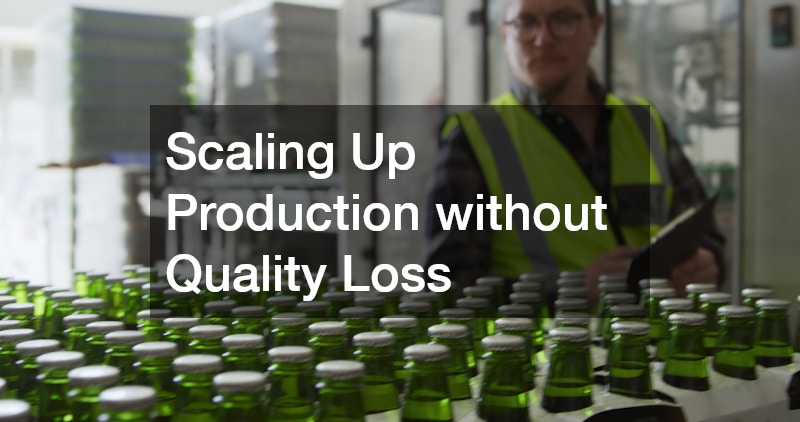The craft brewing industry, known for its artisanal approach and unique flavors, faces numerous production challenges. In recent years, craft brewers have increasingly turned to batch manufacturing solutions to manage these hurdles effectively. This article explores the common production challenges within the craft brewing industry and how batch manufacturing solutions offer promising avenues to address these issues.
Challenge 1: Maintaining Consistency in Flavor
One of the primary challenges in craft brewing is maintaining consistency in flavor across different batches. The artisanal nature of craft brewing often relies on unique recipes, which can lead to variations in taste with every production cycle.
Factors such as ingredient quality, fermentation conditions, and recipe deviations can significantly impact the final flavor. To consumers, consistency is key, and any variation can affect brand reputation and customer loyalty. Therefore, maintaining flavor consistency while preserving the uniqueness of each brew is a pressing concern for craft brewers.
Batch manufacturing solutions provide an effective way to address flavor consistency problems. By implementing standardized production processes, brewers can minimize variations between batches. For instance, automated systems can regulate the quantities of ingredients with precision, ensuring that each brew is as close to the original recipe as possible. Further, batch manufacturing aids in controlling environmental factors like temperature and humidity, critical to predictable fermentation outcomes. Ultimately, these solutions create a controlled setting that helps brewers meet quality expectations consistently, enhancing product reliability.
Advanced batch manufacturing techniques also include comprehensive monitoring and testing protocols. Real-time data collection allows brewers to detect any deviations early in the production process. This proactive approach minimizes batch losses due to unforeseen circumstances like ingredient spoilage or equipment malfunctions. Additionally, data-driven insights help brewers understand patterns and optimize recipes for future production runs. This ability to consistently reproduce desired flavors solidifies consumer trust and supports long-term business success in the competitive craft beer market.
Challenge 2: Scaling Up Production without Quality Loss
Many craft breweries aspire to expand their operations, yet scaling up presents unique challenges. As production increases, so does the complexity of maintaining quality. Batch manufacturing solutions play a pivotal role in facilitating efficient scaling without sacrificing quality. Modular production systems allow breweries to incrementally increase their capacity by adding production units as demand grows. This flexibility helps manage capital expenditures while ensuring consistency and quality are maintained. Additionally, automated systems reduce the margin for human error, which is particularly important in larger and more complex operations. With batch manufacturing solutions, breweries can expand their production capabilities while safeguarding the artisan quality that differentiates their products in the market.
Adopting batch manufacturing processes helps streamline operations and improve efficiency. These systems often incorporate advanced logistics and supply chain management tools that optimize ingredient procurement and inventory control. This reduces waste and ensures a steady supply of high-quality inputs, even in larger production setups. Also, the integration of such solutions prepares the workforce with new skills and operational expertise, essential for handling increased production volumes. Consequently, batch manufacturing solutions offer a balanced approach to scaling operations, whereby quality and craftsmanship are not compromised despite the growth.
Challenge 3: Environmental and Sustainability Concerns
Sustainability is an increasing concern in the craft brewing industry, both in terms of environmental impact and resource efficiency. Water usage, waste management, and energy consumption are significant challenges that brewers must address to meet environmental standards and consumer expectations. The production of beer inherently requires substantial water and energy inputs, leading to increased operational costs and environmental footprints. Additionally, waste generated from surplus ingredients and packaging needs effective strategies for reduction and disposal. With growing awareness of sustainable practices, consumers are likely to favor breweries demonstrating responsible environmental stewardship.
Batch manufacturing solutions contribute to improved sustainability by optimizing resource use. Using precise measurements and controlled production schedules, breweries can minimize waste and enhance energy efficiency. Batch processing allows brewers to plan and execute production cycles based on demand, thereby reducing excess inventory and ingredient spoilage. Furthermore, many automated systems incorporate energy-saving technologies that lower electricity consumption during operations. These efficiencies not only diminish the environmental impact but also contribute to cost savings, aligning financial and ecological goals.
Implementing batch manufacturing solutions aids in meeting waste management demands through innovative practices. Systems equipped with data tracking and automation capture valuable insights into resource usage, facilitating the identification of areas for improvement. Brewers can implement recycling and reuse strategies, minimizing water consumption by recycling cooling and cleaning water. Additionally, leftover grains from brewing can be repurposed as animal feed or used in composting efforts. Through such environmentally conscious initiatives, batch manufacturing solutions support sustainable brewing practices, enhancing brand reputation and customer loyalty in a market that increasingly values eco-friendly products.



